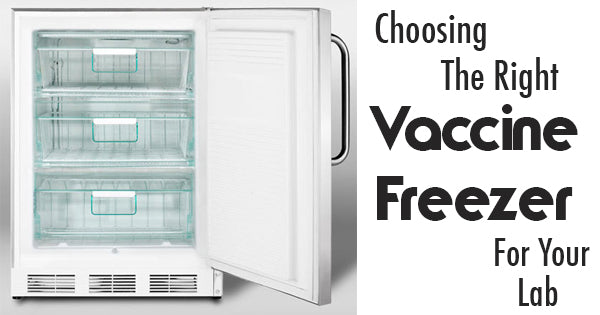Since most laboratory refrigerators and laboratory freezers are used to hold and store medicines and vaccines, the answer might seem to point towards contamination: you don't wont to spoil medication with your lunch (or vice versa), so the primary difference lies in their use right? Actually, there's a bit more to it than that.
Commercial Grade Refrigerators
Whether yours has double doors, a water dispenser, or is dormitory-style, they're all commercial grade. These refrigerators and freezers were designed to keep perishables cool so they last longer. While vaccine and medical refrigerators perform a similar function, the difference lies in the precision of each.
Your produce and deli meats don't need to be kept at extremely specific temperatures -- simple cold air will do the trick. Dormitory-style fridges, in particular, have an evaporator coil located in the freezer compartment where cold air is vented down into the main compartment, resulting in unstable and inconsistent temperatures. Your milk won't mind, but your medications sure will.
Medical Grade Refrigerators
Caring for medication and vaccines, especially in a professional laboratory environment requires three important steps: the temperatures must be recorded at the start of the day, documented every time the door is opened, and reacted to if they've fallen out the ideal range. This is because vaccines and medicines are highly sensitive to temperature changes; even the slightest shift can reduce effectiveness and render the medication useless.
Therefore, medical grade refrigerators are designed to be precise: they rely on at least one powerful fan to evenly circulate air inside, and include wire or perforated steel shelves to ensure better ventilation. Combined, these help keep the temperature uniform and consistent.
While distinguishing the two (and understanding their difference) comes easily in a laboratory setting, choosing where to store your own medications at home is a different story. Consumers will inherently believe there is no difference and, since pharmaceutical grade refrigerators and scientific freezers are generally more expensive, they'll opt for the cheaper commercial option. Hopefully, this article has gone a long way in helping consumers properly store their medications at home to avoid such risks.
